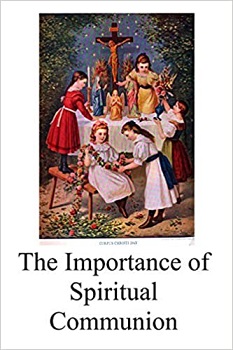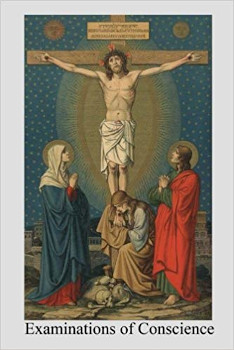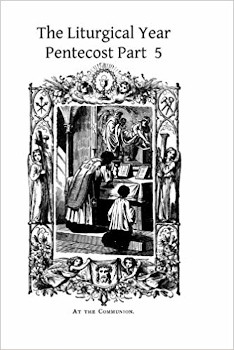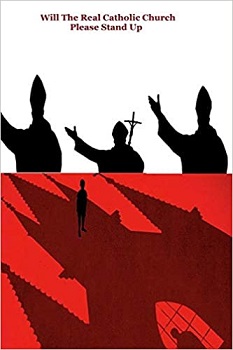September 2020: Olive Tree

Volume V/Issue 6/September 2020


From The Editorial Desk
Hope In The Midst Of Sorrow
Lack of hope is the ultimate agony in suffering. We all suffer. We all go through disappointments, distress. We have disturbances, things that are completely unlike what we had hoped for, planned for. We live with challenges that are seemingly insurmountable. We’re always looking for some light at the end of the tunnel. People can actually endure almost any trial if they could see an end that is good. If they can’t see an end that is good, life becomes overwhelmingly bleak.
The book of Proverbs puts it this way: “Hope that is deferred afflicteth the soul” (Proverbs 13:12). “Hope that is deferred afflicteth the soul” Lack of hope is the ultimate agony in suffering. Lack of hope eliminates joy. Our Lord, however, seeks our joy, and so always gives to us hope.
You look back in the book of Job, for example, and you see Job suffering severely, as severely as anyone could even imagine. And in the middle of his suffering he laments and he says things like this: “My days have passed more swiftly than the web is cut by the weaver, and are consumed without any hope.” (Job 7:6). Speaking of God, Job says, “He hath destroyed me on every side, and I am lost, and he hath taken away my hope, as from a tree that is plucked up.” (Job 19:10)
The psalmist, in severe turmoil, challenges his own heart with these words in Psalm 42: “Why art thou sad, O my soul? and why dost thou trouble me? Hope in God, for I will still give praise to him : the salvation of my countenance, ” The psalmist, in the midst of severe suffering, reaches out toward God and to find in Him his hope.
We all know that Jeremiah is called the weeping prophet. Jeremiah, God’s chosen prophet - great preacher, faithful servant of God - was rejected by his people who did not hear his message, who had nothing but scorn for him, and eventually threw him in a pit and left him to die. It was Jeremiah who was suffering the horrors of all that was going wrong in Israel on the brink of the Babylonian captivity, and the people were not listening to him. The Lord comes to him in his sorrow, and in his tears in chapter 29, and verse 11, the Lord says, “For I know the thoughts that I think towards you... thoughts of peace, and not of affliction, to give you a future and a hope.”
In Lamentations, which is basically the book of weeping, the weeping of Jeremiah, Jeremiah says this, chapter 3, verse 21: “This I recall to my mind, therefore I have hope. The Lord’s lovingkindnesses indeed never cease, for His compassions never fail. They are new every morning; great is Your faithfulness. 'The Lord is my portion,' says my soul, ‘therefore I have hope.'”
This month we focus on Our Lady of Sorrows. Our Mother Mary also felt much sorrow through her life time.
She was gossiped about, accused of fornication, living on the meager side. A loss of her husband probably early on in her marriage, and the loss of her son. To countless numbers of women and men who deal with rejection, hatred, misunderstanding, homelessness, unexpected pregnancies and so much more she would be Our Mother of sorrows.
Yet with all of this, the image I have of Our Lady of Sorrows, is a tender, loving mother. Her peaceful acceptance and the hope of the call made years before by God sustained her. I believe she could say with Jeremiah, “This I recall to my mind, therefore I have hope. The Lord’s lovingkindnesses indeed never cease, for His compassions never fail. They are new every morning; great is Your faithfulness. 'The Lord is my portion,' says my soul, ‘therefore I have hope.'”
Mary, the mother of Sorrows, gives courage and strength to all who come to this loving mother.
In looking to Mary we find comfort and strength in a troubling and chaotic world. We come to realize that through our sufferings and challenges, we are able to identify with the mother of Jesus. And not only can we identify with our mother, but with all the saints. For to become a saint, which by definition means to be holy, we must all go through suffering and sorrow. Through Mary and the saints we can understand that all are called to bear their crosses. Great is our heritage of those who have done so faithfully. For us, it is to better understand the message of the One who calls us, loves us and seeks that we too proclaim the greatness of the Lord. He has called us to be his loving sons and daughters.
We all live in bleak times of disappointment, disillusionment, where we can’t seem to find the light at the end of the tunnel, or we don’t know if there’s a way out, where everything looks bleak and continues to get worse.
Jesus desires our joy, and He will give us eternal joy beyond comprehension.
But even now, He desire our joy – joy because He dwells in us and we know Him; joy because He is has been revealed outside of us through His Church, on the pages of Scripture - New Testament, Old Testament, and through Mary as she proclaims with hope, “My soul proclaims the greatness of the Lord, and my spirit rejoices in God my savior.”
We say with the Apostles, “Give us joy; increase our joy.”
No matter what this life looks like, no matter what the circumstances, we can find our joy in Christ and in the blessed Spirit of Christ who dwells in us. Make we follow our Lady of sorrows example. May it be that the world is literally amazed at our joy, particularly as we live out our Christian lives in dark and troubled times, when people are marked by fear and doubt and questions and anxieties. May we live in the midst of this crooked and perverse generation with joy, joy that is born of an eternal hope and a present Christ.
Our Lady of Sorrows, pray for us!
That Is Revolting

What did you think, when you read this title? When we say this we mean that whatever we are talking about is disgusting. For instance that pot roast was revolting. One conjures thoughts of vomiting that pot roast was so bad.The word revolt has two meanings. One akin to revolting as that skunk revolts me. The other is a rebellion or revolution. In some cases people even praise a revolution, such as wasn't the American Revolution great? But is revolution truly a good thing?
Let us look at the Protestant revolt, which began with 95 theses being posted by Father Martin Luther, an Augustinian monk. Certainly this revolt and what flowed from it was quite revolting in that the Protestant Revolt led millions away from Christianity onto the road to perdition. Revolution can be said to be revolting in the meaning we began with above.
Saint Paul told the Thessalonians (II Thess 2:3): "Let no man deceive you by any means, for unless there come a revolt first, and the man of sin be revealed, the son of perdition," The man of sin, son of perdition is the Antichrist, who will come after a revolt, which will certainly be revolting. This will be the worst revolution in history, a revolution against Jesus Christ and Christianity.
"Be not rebellious against the Lord: and fear ye not the people of this land, for we are able to eat them up as bread. All aid is gone from them: the Lord is with us, fear ye not." (Numbers 14:9) Rebellion and revolution are synonymous. And so let us never revolt against the Lord, for such revolution is a great evil.
And so is there ever a time we should revolt for some good reason? Let us look to Sacred Scripture for guidance.
Saint Paul tells the Romans (13:1-7): "Let every soul be subject to higher powers: for there is no power but from God: and those that are, are ordained of God. Therefore he that resisteth the power, resisteth the ordinance of God. And they that resist, purchase to themselves damnation. For princes are not a terror to the good work, but to the evil. Wilt thou then not be afraid of the power? Do that which is good: and thou shalt have praise from the same. For he is God's minister to thee, for good. But if thou do that which is evil, fear: for he beareth not the sword in vain. For he is God's minister: an avenger to execute wrath upon him that doth evil. Wherefore be subject of necessity, not only for wrath, but also for conscience' sake. For therefore also you pay tribute. For they are the ministers of God, serving unto this purpose. Render therefore to all men their dues. Tribute, to whom tribute is due: custom, to whom custom: fear, to whom fear: honour, to whom honour."
Let us look at this piece at a time. "Let every soul be subject to higher powers: for there is no power but from God: and those that are, are ordained of God. Therefore he that resisteth the power, resisteth the ordinance of God." If we resist lawful authority, we are resisting God. Let us think about this a moment. "Pilate therefore saith to him: Speakest thou not to me? knowest thou not that I have power to crucify thee, and I have power to release thee? Jesus answered: Thou shouldst not have any power against me, unless it were given thee from above." (John 19:10-11) Jesus is telling Pilate that his power comes from God the Father, and Jesus submitted to this misuse of authority. And when Peter pulled out his sword in the Garden of Gethsemane, Jesus said: "Thinkest thou that I cannot ask my Father, and he will give me presently more than twelve legions of angels?" (Matthew 26:53)
"For princes are not a terror to the good work, but to the evil." The question then arises, what are we supposed to do about a tyrant, who is promoting evil rather than good. And this is the basis of revolution, judging our superior to be a tyrant rather than being just. But who is an inferior to judge a superior in such matters. Is the judgment of an inferior in such cases ever just? The Prophet Isaias (10:1-2) tells us: "Woe to them that make wicked laws: and when they write, write injustice: to oppress the poor in judgment, and do violence to the cause of the humble of my people: that widows might be their prey, and that they might rob the fatherless." Certain God wishes woe and even judgment on them, but let us go to verse three to see where this judgment comes from: "What will you do in the day of visitation, and of the calamity which cometh from afar? to whom will ye flee for help? and where will ye leave your glory?" Notice that the judgment of such a person does not come from below, that is their oppressed subjects, but from afar, that is from their neighbors, who God can use to chastise a tyrant.
Let us consider this from Saint Paul: "Revenge not yourselves, my dearly beloved; but give place unto wrath, for it is written: Revenge is mine, I will repay, saith the Lord." (Romans 12:19) When we revolt, rebel and take revenge we are claiming God's job. Let us recall what the serpent told Eve, you shall be as gods. When we rebel, we make ourselves our own gods.
What should we do then, when we are oppressed by a revolting government? This is when we have recourse to our only real weapons, prayer and penance. The world like the Church runs on prayer and penance without the fuel of prayer and balm of penance, the machine of both grinds eventually to a halt. Without fuel, it cannot run, and without oil, the gears grind against each other, deteriorating each other. Rather than rebel, we should appeal to God for help. God may not answer our prayers right away or even may wait decades to answer. However, prayer and penance will sanctify us and bring about an improvement in ourselves and hopefully inspire others to follow our example. The Apostles and early Christians did not revolt against Rome, but brought paganism to its knees by their self-sacrifice, often at the cost of their own lives.
Christ is My Lord and Saviour and My Hope . . . .

I rarely watch television any longer. One thing I refuse to watch, quite frankly, is the news. Whether it is the local news or the network news, I have gotten out of the habit of watching the news for quite a while now. Why is this, you might ask? It is because I get depressed watching the news. The local news is filled with shootings and crime and accidents and it is just depressing to see all of this negative stuff. The network news is again filled with depressing things as stated above but the network news is even worse I have come to discover because it is agenda-driven and the media only shows you news items they want you to watch. Or they slant stories a certain way in which they show the point they want you to see. It is the same with the radio . . . . or the internet . . . or even with Facebook.Now, why do I point all of this out? I do it because I think people do look at all of the negativity being thrown at them all the time and it does have an impact on people. Look, I know just as well as anyone else how easy it is to be all caught up in negative stories and doom and gloom predictions that seem to come from every corner. But the bottom line is that constantly reading all of this, . . . constantly listening to all of this (either on the TV or on the radio), . . . . constantly looking at controversy after controversy on Facebook or other social media . . . . all of this barrage of negativity takes a toll on people eventually.
Everywhere you look, there is the potential to be flooded with negativity and negative stories. It is depressing to watch non-stop coverage of deaths due to a virus . . . riots . . . looting . . . shootings . . . . etc. It is understandable that people get overwhelmed by seeing this day in and day out.
Death and war and crime and controversy have been with us basically as long as the world has been around. And it will continue to exist in this old world of ours. But for the dedicated, committed Christian, we are reminded that God is bigger than all the negativity that the world has to offer. In the Old Testament Book of Deuteronomy, we hear the following: "Be strong and of a good courage, fear not, nor be afraid of them: for the Lord Thy God, He it is that doth go with thee; He will not fail thee, nor forsake thee." (Deuteronomy 31:6) And then two verses later: "And the Lord, He it is that doth go before thee; He will be with thee, He will not fail thee, neither forsake thee: fear not, neither be dismayed." (Deuteronomy 31:8) Now, more than ever, Christians should plant these words of Scripture in their hearts, in their minds, in their souls. Christ will be victorious and His Kingdom will prevail.
Christians are called to be hopeful and their mission is to spread this hope throughout the world. The Church does this by giving testimony of Christ. We can all give our testimony on what Christ means to us. Christ is my Lord and Saviour. He is the One Who died for me on the Cross. He continues to be with me in my everyday struggles . . . . to guide me . . . to strengthen me . . . to lead me. I need to let those around me know this fact and I can let people know by the words that come out of my mouth, by the actions I take on a daily basis, and the love I show towards others around me.
It is so easy to look at everything that is happening today and get depressed by the senseless murder, the hatred, the anger, etc. And yet Christ is bigger than any of these things.
Christ endured hardship during His time on earth. Christ endured the hatred and envy of others while He walked among us. Christ endured grief, sorrow, pain, and death. As human beings, we will endure all of these things as well during our lifetime. But Christ overcame all of these things and rose to a new life! He overcame death. He overcame the world. He overcame the bitterness and hatred of those who sought to destroy Him. And with Our Lord's help, through His dying on the Cross, we will overcome all of these things as well one day. This is what we should be focusing on rather than focusing on the latest controversy or evil that the world has to offer. Our Lord's words have more meaning for our present age than ever before: "Peace I leave with you, My peace I given unto you: not as the world giveth, give I unto you. Let not your hear be troubled, neither let it be afraid." (St. John 14:27) Let Christ be your guiding light. Let Him rule your life. Do not conform to the dictates of the world. Follow Our Blessed Saviour and always look towards Him in hope.
The Funny Pharmacy
A joyful mind maketh age flourishing: a sorrowful spirit drieth up the bones. - Proverbs 17:22



Frequently Asked Questions

Are You Roman Catholic?
The Fathers of the First Vatican Council (1869-1870) discussed an official name for the Church founded by Jesus Christ. It was proposed to call the Church the Roman Catholic Church, because the Church is in union with the Bishop of Rome, also called the Pope, as the Fathers of the Church say is required to be in the Church of Jesus Christ.
The Bishops of England objected to this and asked to be heard by the Council. One of their number explained their reasoning. In England at the time, the Anglicans had proposed what is called the Branch Theory. In this theory, the Church had three branches, Catholic, Orthodox and Anglican. The Bishops said to call us anything more than Catholics would give credence to this theory. The Council accepted this objection and decided that we should not be called Roman Catholics, but merely Catholics as we have been for centuries.
For answers to more frequently asked questions, click here: https://www.vaticaninexile.com/frequently_asked_questions.php
The Pope Speaks: September 2020
How Can You Rebel Against Church Officials, When You Tell Us Rebellion Is Revolting?

In this issue of the Olive Tree there is an article on Revolution, That Is Revolting. Our position appears to contradict the thrust of this article. However, we must understand some important points. Some say, by leaving what calls itself the Catholic Church, we are rebelling against the authority God has established. We are rebelling against our Pastors, who God as appointed over us. "Obey your prelates, and be subject to them. For they watch as being to render an account of your souls; that they may do this with joy, and not with grief. For this is not expedient for you." (Hebrews 13:17)
Let us begin with, when can we resist our Pastor? The answer is simple, when he ceases to be our Pastor. There are two reasons we can come to the conclusion a Pastor has ceased to be our Pastor. The first is when his superior removes him from office. By no longer obeying this man, we are not rebelling, but waiting for our superior, usually the Local Ordinary, also called the Bishop of the Diocese to send a replacement. And the same is true of our own Bishop, who can be moved or removed by the Pope, and the Pope will appoint a replacement.
There is another reason a man can cease to be our pastor, that is by leaving the Catholic Church, because a man cannot have authority in a Church he is not a member of. The Code of Canon Law provides that a cleric who publicly abandons the Catholic Faith, which he does by public heresy, loses every office he may have in the Church immediately and without any need of declaration. (See Canons 188, paragraph 4 and 2314, Paragraph 1, note 3)
Pope Pius XII in Mystici Corporis Christi, paragraph 22 stated: "Actually only those are to be included as members of the Church who have been baptized and profess the true faith, and who have not been so unfortunate as to separate themselves from the unity of the Body, or been excluded by legitimate authority for grave faults committed." In the next paragraph he stated: "For not every sin, however grave it may be, is such as of its own nature to sever a man from the Body of the Church, as does schism or heresy or apostasy."
Saint John Chrysostom tells us of heretics, commenting on Hebrews 13:17, which We quoted above: "If indeed in regard to Faith, flee and avoid him;" Further on he notes: "Moreover, 'Judge not that ye be not judged' (Matthew 7:1) concerns life, not faith:"
Saint Paul tells Bishop Titus (3:10): "A man that is a heretic, after the first and second admonition, avoid: Knowing that he, that is such an one, is subverted, and sinneth, being condemned by his own judgment." Note well, Titus is a Bishop and the Office of Bishop includes the duty of addressing and removing heretics. In fact, the Bishop of a Diocese may handle a case of a heretic that becomes public in his diocese. Those who think the warnings are necessary should remember what the Douay-Rheims reminds us in a note on these verses: "'By his own judgment': Other offenders are judged, and cast out of the church, by the sentence of the pastors of the same church. Heretics, more unhappy, run out of the church of their own accord, and by doing so, give judgment and sentence against their own souls." If Saint Paul was addressing anyone other than a Bishop, he would simply say to avoid heretics.
Saint Paul tells the Galatians (1:8-9): "But though we, or an angel from heaven, preach a gospel to you besides that which we have preached to you, let him be anathema. As we said before, so now I say again: If any one preach to you a gospel, besides that which you have received, let him be anathema."
We have learned the truths of the Catholic Faith from our basic catechisms, and we know that truth does not change. Modernism teaches that was true and good for someone a century ago, can be false and bad today. Joseph Ratzinger used this principle in comparing Vatican II with the Syllabus of errors from a century before. He called Vatican II a counter-Syllabus, meaning Vatican II declared that what was false in the mid nineteenth century became true a century later at Vatican II.
For more information, please read: What Can People Judge In Regard To Heresy


Saint Mark the Ascetic
On The Spiritual Law

21. "The iron gate that leads into the city" is a hard heart (Acts 12:10); but to one who suffers hardship and affliction the gate will open of its own accord, as it did to Peter.
22. There are many differing methods of prayer. No method is harmful; if it were, it would be not prayer but the activity of Satan.
23. A man wanted to do evil, but first prayed as usual; and finding himself prevented by God, he was then extremely thankful.
24. When David wanted to kill Nabal the Carmelite, but was reminded of the divine retribution and abandoned his intention, he was extremely thankful. Again, we know what he did when he forgot God, and how he did not stop until Nathan the Prophet reminded him (cf. 1 Sam. 25; 2 Sam. 12).
25. At the times when you remember God, increase your prayers, so that when you forget Him, the Lord may remind you.
26. When you read Holy Scripture, perceive its hidden meanings. "For whatever was written in past times was written for our instruction/" (Rom. 15:4)
27. Scripture speaks of faith as "the substance of things hoped for," (Heb. 11:1) and describes as "worthless" those who do not know the indwelling of Jesus (cf. 2 Cor. 13:5).
28. Just as a thought is made manifest through actions and words, so is our future reward through the impulses of the heart.
29. Thus a merciful heart will receive mercy, while a merciless heart will receive the opposite.
30. The law of freedom teaches the whole truth. Many read about it in a theoretical way, but few really understand it, and these only in the degree to which they practice the commandments.
Saints from East and West

September 14 - Saint Notburga, Virgin (c. A.D. 1313).
Some fourteen years before the death of Saint Zita at Lucca there was born at Rattenberg in Tirol a girl who was to become as well known as a patron of domestic servants in her own neighbourhood as is Saint Zita in a more extended area.
This girl, Notburga by name, was the daughter of a peasant, and at the age of eighteen entered the service of Count Henry of Rattenberg and was employed in the kitchen. There was a good deal of food left over from the tables of this feudal establishment, and Notburga used to take it to one of the side doors of the castle and give it away to the poor people who daily waited there. Not content with this, she would even stint her own meals to increase the portion of the poor. When Count Henry's mother died, his wife, the Countess Ottilia, looked less favourably on the charity of the kitchen-maid, and gave orders that the broken food was to go into the pigbuckets as heretofore, and be fed to the swine. For a time Notburga did as she was told, and gave to the poor only what she could save from her own food and drink, but she soon began secretly to continue her old practice, till one day her mistress caught her at it and she was dismissed. The Countess Ottilia died shortly after, and the victims of her parsimony, with that whimsical realism with which the poor watch the antics of the rich, said that her ghost haunted the pigsties of Rattenberg castle, and that the count had had to have the place exorcized.
Notburga now hired herself to a farmer at Eben, and a legendary incident during her time with him is familiar to all good Tirolese children. One Saturday afternoon in the harvest-time Notburga was reaping, when the church bell rang for Vespers, indicating that Sunday was begun. Notburga stopped work and was preparing to go to church, when her employer came along and told her to go on working. She refused: Sunday begins with Saturday Vespers, and good Christians do not reap on Sundays in fine weather. The farmer argued; the weather might change. "Very well," replied Saint Notburga, "let this decide it." Picking up the sickle, she threw it into the air - and there it remained suspended, looking like the first quarter of the harvest moon against the evening sky.
Count Henry in the meantime had been suffering considerably in the strife between the count of Tirol and the duke of Bavaria, and Saint Notburga's biographer, who wrote in the seventeenth century and had a lively and credulous imagination, says that Henry attributed all his misfortunes to the meanness of his late wife and the consequent dismissal of Notburga. So, when he married a second time and somebody was required to manage the household, she was installed as housekeeper and lived a happy and holy life at Rattenberg for the rest of her days. Before she died she particularly recommended her beloved poor to her master, and asked him to lay her body on a farm-wagon and bury it wherever the oxen should finally rest. This was done, and after a journey of which the usual miraculous accompaniments are recorded, the oxen brought the burden to a halt before the door of the church of Saint Rupert at Eben. Here accordingly St Notburga was buried. In 1862 Pope Pius IX confirmed her local cultus as patroness of poor peasants and hired servants.

September 19 - Saints Trophimus, Sabbatius, And Dorymedon, Martyrs.
The Holy Martyrs Trophimus, Sabbatius, and Dorymedon suffered for Christ during the reign of the Roman emperor Probus (276-282).One time in the city of Antioch a pagan feast-day was being celebrated. The sacrificial offerings were brought, the wine was poured, and the vile acts were done. The Christians Trophimus and Sabbatius arrived in the city, and with grief looking upon this loud and indecent spectacle, they besought the Lord to guide the errant onto the way of salvation. They were arrested and taken to the governor.
At the interrogation, the saints firmly confessed their faith, and to the demand that they renounce their faith, they answered with a resolute refusal. During the time of fierce tortures Saint Sabbatius died, and Saint Trophimus was sent off, for even more terrible tortures, unto the city of Synnada to the governor Frigius Dionysius, infamous as a torturer and executioner.
Shod in iron sandals with sharp nails, Saint Trophimus for three days went on foot, driven on by a cavalry guard. The skilled torturer used all manners of torture to break the will of the brave Christian but Saint Trophimus merely repeated the words of Scripture: "many an affliction hath the righteous one, but from them all wilt the Lord deliver him." (Ps. 33:20)
They threw the sufferer into prison, where he was visited by a secret Christian - the senator Dorymedon. He attended to Saint Trophimus, washing and binding his wounds. When this came to the attention of the torturers, they began to demand Saint Dorymedon renounce Christianity, and then they threw him together with Saint Trophimus for devouring by wild beasts. But the martyrs remained untouched. Then they beheaded them with the sword.


Books to feed your faith!

The Importance of Spiritual Communion
Kindle $2.99 / Paperback $5.99
If we cannot receive Holy Communion actually, then let us do so spiritually. These prayers and instructions have been gathered from the Saints and other venerated spiritual writers. Spiritual Communion has been a part of the spiritual life for decades. Growing up I was instructed to make a Spiritual Communion, when I could not go to Communion such as when I assisted at a second Mass. The same is true if one finds oneself at Mass, but not fasting. There are times coming, when it will be difficult, if not impossible to assist at the Holy Sacrifice of the Mass. We should be prepared for such times.

$14.95
This work contains several examinations of conscience from Catholic classic books. It also contains Saint Alphonsus' instruction on Confession from his Catechism. Further notes are contained on modern sins and on conversion. One examination of conscience distinguishes between mortal and venial sins. In preparing for the Sacrament of Confession it is easy to get into a rut, using the same examination of conscience for every Confession. These examinations are from various sources and are provided to help us shake up our spiritual life. By varying our routine, we can more easily identify our sins and bring them to the tribunal of Penance where we can present them before the Divine Physician and His human representative, the duly authorized priest. In this way our confessor can prescribe the remedies for our sins, so that we can heed the advice of Jesus: “Go now and sin no more, lest some worse thing happen to you.” (John 5:14) Since these come from timeless older works, they have been updated by this author to include the sins that are so easily committed with modern technology, such as radio, television, moves, the computer and the internet. We hope all will benefit from the sage advice contained in this book.

Spiritual Despondency and Temptations
$15.95
In this book you will therefore find wholesome instruction, great knowledge of the interior life, and of the human heart, - the result of years of experience in the direction of souls. The subject is at once both highly important and very difficult. The Author has not confined himself to general principles and vague maxims, but he has entered into the very sanctuary of the soul, into its secret folds and most intricate windings. The thread of Reason, the light of Faith, and the torch of Experience have led him safely through that labyrinth where so many lose themselves, rashly attempting to explore it without the proper guides. A few principles, presented under different aspects, solve all difficulties, throw light upon doubts that are ever recurring, expose all the subterfuges of self-love, sloth, and cowardice, refute their objections, and silence their excuses. The Author has followed the most useful plan for works of this kind. He adopts the method of reasoning - and his reasoning is as clear as it is solid. The greater number of persons who profess piety prefer appeals to their imagination and to their heart, rather than to their reason. They like to be excited by lively descriptions, and by tender and touching language; but in so doing, they are seeking a passing gratification rather than a real and permanent benefit. Such descriptions and sentiments soon fade away, but the fruits of conviction are more lasting. Pure reason and true faith never vary; imagination and feeling are incessantly changing according to the different objects which act upon them. It is from indolence that feeling is preferred to reasoning. The greater part of mankind are indolent, and hence there are so few who care to reflect and reason. But one who has an earnest love for virtue and duty, who is anxious about his salvation, should not shrink from the mental effort which the exercise of reason and of faith requires. We should remember that no sincere and permanent resolution can be taken without a conviction of its necessity. This is according to the natural order of reason, and to the economy of grace. The understanding must be enlightened before the will can be moved. This work appears to be specially intended for the instruction of persons living in religious communities, and for seculars aiming at perfection; but in this age of indifference and discouragement all who profess the true faith may here find no little help to undeceive them in their errors, and to strengthen them against the wiles of self-love. We venture to hope that even Directors of consciences may discover therein that which will increase their light, and supply for any want of experience in their difficult and dangerous ministry.

The Liturgical Year: Pentecost Part 5 (Volume 14)
$19.95
This is a fifteen volume set, which is being brought back into print for the edification of the Faithful. Anyone who wishes to appreciate the timeless Tridentine Mass and liturgy will find this set a valuable aid in that endeavor. Dom Gueranger has produced a most excellent work, which began the liturgical movement. We pray that this set of books will bring many more to a true appreciation of the Latin Mass and the Divine Office of the Catholic Church. At one time, under the impulse of that Spirit, which animated the admirable Psalmist and the Prophets, she takes the subject of her canticles from the Books of the Old Testament; at another, showing herself to be the daughter and sister of the holy Apostles, she intones the canticles written in the Books of the New Covenant; and finally, remembering that she, too, has had given to her the trumpet and harp, she at times gives way to the Spirit which animates her, and sings her own new canticle. From these three sources comes the divine element which we call the Liturgy. The Prayer of the Church is, therefore, the most pleasing to the ear and heart of God, and therefore the most efficacious of all prayers. Happy, then, is he who prays with the Church, and unites his own petitions with those of this Spouse, who is so dear to her Lord, that he gives her all she asks. It was for this reason that our Blessed Saviour taught us to say our Father, and not my Father; give us, forgive us, deliver us, and not give me, forgive me, deliver me. Hence, we find that, for upwards of a thousand years, the Church, who prays in her temples seven times in the day, and once again during the night, did not pray alone. The people kept her company, and fed themselves with delight on the manna which is hidden under the words and mysteries of the divine Liturgy. Thus initiated into the sacred Cycle of the mysteries of the Christian year, the faithful, attentive to the teachings of the Spirit, came to know the secrets of eternal life ; and, without any further preparation, a Christian was not unfrequently chosen by the Bishops to be a Priest, or even a Bishop, that he might go and pour out on the people the treasures of wisdom and love, which he had drunk in at the very fountain-head. For whilst Prayer said in union with the Church is the light of the understanding, it is the fire of divine love for the heart. The Christian soul neither needs nor wishes to avoid the company of the Church, when she would converse with God, and praise his greatness and his mercy. She knows that the company of the Spouse of Christ could not be a distraction to her. Is not the soul herself a part of this Church, which is the Spouse? Has not Jesus Christ said: Father, may they be one, as we also are one? and, when many are gathered in his name, does not this same Saviour assure us that he is in the midst of them? The soul, therefore, may converse freely with her God, who tells her that he is so near her; she may sing praise, as David did, in the sight of the Angels, whose eternal prayer blends with the prayer which the Church utters in time.
For More Good Traditional Catholic Books:

Tomato Pie

Ingredients
1 (9 inch) deep dish pie crust
4 large tomatoes, peeled and sliced
1/2 cup chopped fresh basil
3 medium green onions, thinly sliced
1/2 pound bacon - cooked, drained, and chopped
1/2 teaspoon garlic powder
1 teaspoon dried oregano
1/2 teaspoon crushed red pepper
2 cups shredded Cheddar cheese
1/4 cup mayonnaise
Directions
Preheat oven to 375 degrees F (190 degrees C).
In alternating layers, fill pastry shell with tomatoes, basil, scallions, bacon, garlic powder, oregano, and red pepper. In a small bowl, mix cheese with mayonnaise. Spread mixture over top of pie. Cover loosely with aluminum foil.
Bake in preheated oven for 30 minutes. Remove foil from top of pie and bake an additional 30 minutes. Serve warm or cold.
Traditional Honey Cookies

1 cup white sugar
1 cup shortening
1 cup honey
2 large eggs eggs
1 teaspoon vanilla extract
1 teaspoon baking soda
4 cups all-purpose flour
1 teaspoon ground ginger
Directions
In a saucepan over low heat, melt together sugar, shortening and honey. Let cool.
Mix together eggs, vanilla, baking soda and ginger. Gradually add to cooled honey mixture.
Slowly add 4 cups of flour to mixture. Stir until well blended. Drop by teaspoonfuls onto cookie sheets about 2 inches apart. Bake at 350 degrees F (180 degrees C) until golden (about 12-15 minutes).
Video sermons and instructions: Timeless timely truths for living the Faith
15th Sunday after Pentecost - 2011
Birthday of the Blessed Virgin Mary
Getting the Gospel Right
Ep 6 The Cost of Being A Disciple Of Christ

Encouragement for Today
Therefore encourage one another and build one another up.... I Thessalonians 5:11
We believe...
that through our assorted podcasts, audio downloads and devotional blogs, you will find an assorted Treasure Chest of...
Sermons
Devotionals
Scripture Studies
Catechism Lessons
Daily Blogs
...that will be a help in your faithful walk with the Lord.
LEARN MORE AT THE ENCOURAGEMENT FOR TODAY WEBSITE: https://www.encouragementfortoday.com
"For I will behold thy heavens, the works of thy fingers: the moon and the stars which thou hast founded."
Psalm 8:3
Studies show that it takes about a second to decide whether a person will do A or B. That’s much too slow to make a successful typist or pianist. Good typists execute one keystroke every 60 thousands of a second. A pianist can play 30 notes with each hand about every 40 thousands of a second. How do they do it?
Then there is the precision of the microsurgeon who repairs structures in the body so small he must peer at them through a microscope. Part of the secret of this design is the muscle structure of each finger and the hand. The basic finger design begins with seven muscles. Your thumb has five additional muscles. And, believe it or not, your humble pinky finger has three more muscles than the basic design. The muscles don’t work alone. The tendons of the hand and fingers add elastic force to the operation of the hand. Essential to making these elements work together with precision is your sense of touch. Your fingerprints add the ability to sense texture and forces with more precision. All of these elements combine with the brain which automatically thinks several keystrokes ahead of the typist’s and pianist’s keystrokes, resulting in the seemingly impossible abilities of the hand.
The human hand is a unique precision design that could only have come from God’s hand.
Prayer: I rejoice, Father, in all that Your hands have made, including my hands, and in those Hands that were pierced for my salvation.
Catechism Catch-Up
The Fourth Commandment: Lesson 10

When it comes to the fourth commandment we are comfortable with its implications for children, but perplexed when it comes to the implications for adults. How do we, as adults, show honor to our parents? What are our continuing obligations? What about parents who are difficult, absent, abusive, or even dead? What are the limitations on this commandment? These are great questions and as we go along, we will attempt to come to satisfying conclusions.
In this lesson we want to explore the benefits God promises to those who obey His commandment. Yet this means we also need to take a hard look at the ugly consequences He promises to those who disobey. When it comes to the relationship of children to their parents, the Bible holds out sweet promises of blessing but also terrible threats of judgment.
A Commandment With Promise
The Ten Commandments play a crucial role in our world: They teach human beings how to live in the way God means for us to live. The God who created us reveals his law to direct us to the fullest, most satisfying lives. These commandments tell rebellious and disordered people how to live in submission and order. The fourth commandment, then, speaks to people prone to rebel against authority—all of us, that is—and says, “Honour thy father and mother, as the Lord thy God hath commanded thee, that thou mayst live a long time, and it may be well with thee in the land, which the Lord thy God will give thee.” (Deuteronomy 5:16).
Did you notice that God attaches blessings to this commandment? Writing centuries later, the Apostle Paul is sure to point these out when he addresses the young children in the congregation at Ephesus. He says, “Children, obey your parents in the Lord, for this is just. Honour thy father and thy mother, which is the first commandment with a promise: That it may be well with thee, and thou mayest be long lived upon earth.” (Ephesians 6:1-3). Packed into these two sentences are three reasons children must honor their parents as well as two great promises to those who do so.
Why should children honor their parents?
-
First, because nature demands it. Paul says simply, “this is right.” This is the way God has created humanity, so that children honor their parents. All humans in all of time have this knowledge and this expectation.
-
Second, because God’s law demands it. Paul quotes the fourth commandment to show that God demands honor as an important part of his revealed will for humanity.
-
Third, because the gospel demands it. Paul tells children to obey their parents “in the Lord.” Those who have been baptised in Christ are called to follow him in everything. The gospel assures children they can joyfully honor their parents and the gospel gives them the motivation to actually do so.
God’s blessing for those who obey the fourth commandment takes shape in two forms: a long life and a good life.
What happens to those who heed nature, law, and gospel to honor their parents? God blesses them: “…that it may go well with you and that you may live long in the land.” God’s blessing for those who obey the fourth commandment takes shape in two forms: a long life and a good life. These blessings are both a motive to obey and a natural consequence of such obedience.
A Long Life, A Good Life
The Ten Commandments were given by God to a particular people in a unique context. In that day living long and living in the Promised Land were the ultimate proofs of divine blessing. These were signs that people were in God’s favor, that they were experiencing the promised good life that comes with faithfulness to their covenant obligations. On the other hand, a shortened life or a life lived in exile were the ultimate proofs of divine disfavor, that they were experiencing the curses that come with breaking their covenant obligations.
We need to understand, as did the Israelites, that these promises were not guarantees. God did not mean to communicate “Honor your parents and I guarantee you will live to see at least eighty birthdays.” Neither did he mean to communicate, “If you have a short life it is proof you have dishonored your parents.” Rather, he meant to point to the truth that those who honor their parents generally experience a better life than those who do not. Why? Because those who honor their parents are doing things God’s way, living in the way God created humans to live.
Do you want to live with the favor of God upon you? Would you like to feel the blessing and the good hand of God upon your life? Then obey his commands. He points also to a hidden benefit: Honoring our parents helps complete our transition to adulthood. As we deliberately seek ways to honor our parents, we begin to reciprocate the love they have given us since the moment of birth. We complete the relationship by reaching out in love to them just as they have always reached out to us. The love, the care, the honor, is now mutual, just the way God intends it. We have grown up.
A Short Life, A Miserable Life
While the fourth commandment lays out the terms of blessing for obedience, it implies the consequences for disobedience. These consequences are spelled out in greater detail elsewhere in the Bible, first in the civil law and then in the Old Testament’s wisdom literature.
As God revealed the law that would govern the nation of Israel, he included a penalty for those who would flagrantly and unrepentantly violate the fourth commandment. It may shock us to realize this was the same penalty as for murder and other horrendous crimes:
-
“He that striketh his father or mother, shall be put to death. He that curseth his father, or mother, shall die the death.” (Exodus 21:15, 17).
-
“He that curseth his father, or mother, dying let him die: he hath cursed his father, and mother, let his blood be upon him.” (Leviticus 20:9).
-
“If a man have a stubborn and unruly son, who will not hear the commandments of his father or mother, and being corrected, slighteth obedience: They shall take him and bring him to the ancients of his city, and to the gate of judgment, And shall say to them: This our son is rebellious and stubborn, he slighteth hearing our admonitions, he giveth himself to revelling, and to debauchery and banquetings: The people of the city shall stone him: and he shall die, that you may take away the evil out of the midst of you, and all Israel hearing it may be afraid.” (Deuteronomy 21:18-21)
To think that today we expect rebellion from our children and teenagers! To think that today we think so lightly of this kind of defiance! God’s law shows just how seriously God takes the fourth commandment. How is it then that we treat it so flippantly?
The book of Proverbs further displays the horror and consequences of dishonoring parents:
-
“He that afflicteth his father, and chaseth away his mother, is a son that causeth shame, and bringeth reproach.” (Proverbs 19:26).
-
"He that curseth his father, and mother, his lamp shall be put out in the midst of darkness." (Proverbs 20:20)
-
“The eye that mocketh at his father, and that despiseth the labour of his mother in bearing him, let the ravens of the brooks pick it out, and the young eagles eat it.” (Proverbs 30:17).
Though portrayed in poetic language, the picture is clear: There are the sweetest blessings stored up for those who obey the fourth commandment and there are the most terrible judgments stored up for those who do not. God expects and demands that children will honor their parents.
The Duty of Honor
You and I do not live in ancient Israel. We are no longer under the civil laws of God’s nation. Yet God’s blessings still extend to us. After all, Paul freely assured the children of Ephesus that God would bless them as they honored their parents. They would acknowledge, as we do, that the promise of land is no longer valid. (Did you notice how in Ephesians 6 Saint Paul quotes the Old Testament but leaves out the part about the land the Lord your God is giving you?) But the general rule remains: If we live in God’s ways we receive God’s favor; if we defy God’s ways we forfeit God’s favor. We owe our parents the duty of honor and it works like this: Honor God by honoring your parents and expect it will go well with you; dishonor God by dishonoring your parents and expect it will not. It’s the way God has structured his world.
A Question
God extends his blessing to those who honor their parents. The Bible places no limitation on this. There is no indication that the duty of honor expires when we become old or married or financially independent. There is no indication that it is nullified when our parents are unfair or unkind or even impossible or full-out abusive. We will discuss this more in future lessons, after we have turned to the matter of obedience.
But for now, let me leave you with this: Do you want to be blessed? Do you want to experience God’s favor? Then honor your parents. As far as I can see, it’s that simple, that straightforward. God stores up blessings to dispense to those who obey this command.
READ MORE FROM THE TRADITIONAL CATECHISM AT THE WEBSITE: https://www.traditionalcatechism.com
Living Catholic:
How do irritations help fulfill God’s purposes for my life?

Trading Irritations for Maturity:
Embracing God’s transforming work in your life.
Irritations often expose areas in which you need to mature. God wants every Christian to reflect the integrity of His Son Jesus Christ, and God can work through the people and circumstances of your life to press you toward that point of maturity. (See Romans 8:28–29.)
Although it can seem like a daunting task, God can enable you to respond well to irritations and thereby gain the benefits that He wants you to receive. As God works in your life, you will become more sensitive to the needs of others and encounter new opportunities to demonstrate the love of Christ to them. He will help you develop character qualities that honor Him.
“Let this mind be in you, which was also in Christ Jesus . . . . For it is God who worketh in you, both to will and to accomplish, according to his good will.” (Philippians 2:5, 13).
Face Challenges and Experience Change
Consider how God can use the following situations to help you grow:
-
Difficult people help you develop genuine love based on mature insight.
-
Confusing situations motivate you to maintain inward peace by deliberately and confidently putting your trust in God and the promises found in His Word.
-
Circumstances that bring sorrow teach you how to have joy even in the midst of pain.
-
Inconveniences teach you to be flexible.
-
Obvious needs of others prompt you to be generous.
-
Unwelcome responsibilities help you become consistently trustworthy.
-
Violations of your personal rights remind you to surrender them to God.
-
Temptations teach you to demonstrate God-honoring self-control.
Follow in Christ’s Steps
In the midst of challenges, the Apostle Peter draws our attention to Christ’s example: “For this is a gracious thing, when, mindful of God, one endures sorrows while suffering unjustly. For what credit is it if, when you sin and are beaten for it, you endure? But if when you do good and suffer for it you endure, this is a gracious thing in the sight of God For this is thankworthy, if for conscience towards God, a man endure sorrows, suffering wrongfully. For what glory is it, if committing sin, and being buffeted for it, you endure? But if doing well you suffer patiently; this is thankworthy before God. For unto this are you called: because Christ also suffered for us, leaving you an example that you should follow his steps. Who did no sin, neither was guile found in his mouth. Who, when he was reviled, did not revile: when he suffered, he threatened not: but delivered himself to him that judged him unjustly.” (I Peter 2:19–23).
Let Patience Complete Her Work
In several places, Scripture describes Godly character qualities and the blessings that come to those who live them out. Following are a few of the qualities that reflect Jesus Christ and demonstrate the work of God’s grace in our lives.
The Beatitudes (See Matthew 5:3–12.)
-
Humility
-
Mourning
-
Meekness
-
Spiritual hunger
-
Mercy
-
Purity
-
Peacemaking
-
Endurance in persecution
The Fruit of the Spirit (See Galatians 5:22–23.)
-
Charity/Love
-
Joy
-
Peace
-
Patience
-
Benignity/Gentleness
-
Goodness
-
Faith
-
Mildness/Meekness
-
Continency/Self-control
As you respond to God’s work in your life—through irritations, challenges, joys, or sorrows—He will be faithful to lead you to become more and more like Jesus, Who demonstrated all the qualities of Godliness.
“My brethren, count it all joy, when you shall fall into divers temptations; Knowing that the trying of your faith worketh patience. And patience hath a perfect work; that you may be perfect and entire, failing in nothing.” (James 1:2–4).
To Learn More Principles For Life Go To: Resources: Principles of Life


Pray for the Holy Father! Pray with the Holy Father!
- Your prayers are asked this month and every month for the intentions of the Holy Father, Pope Michael.
- Please pray for one of our regular contributors and authors whose computer has just died. May he be back online soon!
- Pray especially that Holy Ghost inspires and helps us prepare spiritual manuals and days of recollection to make available to all.
- Keep in your prayers our Podcast Ministry, a new way to reach out in the missionary work of the Church! We ask for prayers for our other activities world wide. We have made good contacts in the Philippines and Japan and ask prayers that these contacts will bear much fruit for the salvation of souls.
- Be sure to keep St. Helen Catholic Mission in your prayers. Why not go on over to the site now and see what they have to offer and how you might be able to help!
- Also we ask you to keep in prayer our increasing missionary work in the United States and elsewhere.
- Your prayers are asked for Father Francis Dominic as he continues the new work in Kissimmee Florida that has been entrusted to him within the Church.
- Pray for those outside the Church and those who do not know God, that they may see the light of grace and be led safely home to the refuge of the Holy Catholic Church.
- As always, we also ask that you pray for yourself! Never forget your own state of soul. God is calling you to His service in His love. We know that our Lord can count on you to answer.
- We are all praying especially for you, too. May you correspond with every grace of God!
- In what other needs or intentions may we pray for you? Let us know!
- Let us remember that the Church runs on prayer. Without your prayers, God will not work in hearts and souls to bring them to a knowledge of the truth. (I Timothy 2:4)


To Donate online go to:

To Donate by Mail:
Our address is
Vatican in Exile
829 NE Chester
Topeka, Kansas 66616
Make Checks payable to:
Vatican in Exile












 Follow
Follow


